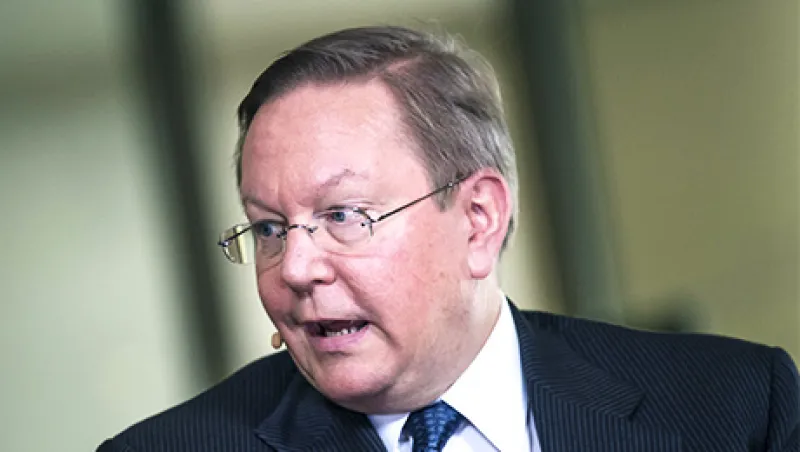If an investment yields results, copy cats move in, and returns fall over time. Financial executives are concerned that’s now happening to the direct investment model pioneered by Canadian pension plans.
For some pensions, that means needing to understand the market effects of copy cats, particularly in private equity and infrastructure. Ron Mock, president and chief executive officer of Ontario Teachers’ Pension Plan, which adopted the governance structure and the model in the 1990s, says the trend in these asset classes has affected prices on some of its investments.
“Unfortunately, it has bid up private equity prices and infrastructure prices to a level that is fairly high,” Mock said, while speaking Tuesday on a panel on the outlook for asset management at the Milken Institute Global Conference in Los Angeles. Mock says he sees allocators all over the world, including in the U.S., U.K., Asia, and the Middle East, adopting the Canadian model.
Some fund managers caution that the model involves plenty of complexity and many big investors may be disappointed with the ultimate results. David Hunt, president and CEO of PGIM, the investment management business of Prudential Financial, says there is a big shift to illiquid assets as people seek good returns and diversification.
“It’s not a generic skill set,” said Hunt, who also spoke on the panel. “It’s very important that pension funds staff up in advance with the kinds of skills that will help them. I see that as a big challenge.”
Mock says talented people with specialized skills are needed to achieve outsized returns. For example, Ontario Teachers’ Pension Plan directly owns five airports, requiring the hiring of staffers with engineering and operations backgrounds. These types of people are very different from other hires at Ontario Teachers’. “To find that alpha, we see this ramping up further and further,” Mock said.
Panelist Noble Gulati, CEO of Two Sigma Advisers, says that most pensions won’t have the resources to compete for talent with independent investment managers that are willing to offer lucrative pay packages. “Instead, they’ll hire external managers,” said Gulati, who added that picking the best external managers can also be an expensive prospect.
Ontario Teachers’ isn’t waiting for others to catch up. “Illiquid investments was a great area to play in, but now we’re seeing things get compressed. So where do we hunt going forward?” Mock said. The Canadian pension plan is looking at contrarian moves, such as forming partnerships with activist investors, which it did a few years ago, or moving assets from passive to active, which it’s doing now.







